12 high protein foods for diet and weight loss
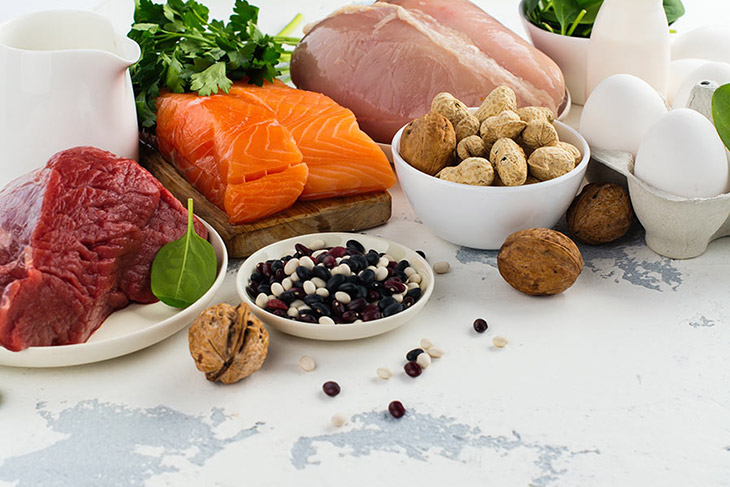
Discover the best high protein foods to support fat loss, build lean muscle, and fuel your healthiest life.
When it comes to effective weight loss, protein is a powerhouse. Not only does it help build and repair muscle, but it also plays a critical role in satiety, keeping you fuller for longer and supporting a faster metabolism.
If you're planning to lose weight or maintain a healthy diet, incorporating foods high in protein into your meals is one of the most strategic moves you can make. In this guide, we’ll cover the top high protein foods, their benefits, and how to prep them for success.
Why do we need protein?
Protein is one of the three essential macronutrients, alongside carbohydrates and fats. It’s involved in almost every cellular process, from enzyme production and hormone regulation to muscle growth and tissue repair.
Your body doesn’t store protein in the same way it stores fats or carbs, which means you need a steady intake to maintain function and vitality. For those looking to lose weight, high protein food becomes even more critical.
Benefits of incorporating high protein foods
1. Muscle Matters
Protein is essential for building and preserving lean muscle mass. Whether you are staying active or strength training, foods high in protein help repair and grow muscle fibres after physical activity.
Protein and Menopause: Why It Matters More Than Ever
As you enter perimenopause and menopause, hormonal changes, especially the drop in oestrogen, can accelerate muscle loss. This condition, known as sarcopenia, leads to reduced strength, lower metabolism, and increased fat storage.
Eating foods with high protein during this life stage helps preserve muscle, support bone density, and maintain energy levels. Prioritising protein now will set you up for your best possible midlife and beyond, helping you stay strong, agile, and independent.
2. Weight Management
One of the most science-backed benefits of protein is its ability to promote satiety. Foods high in protein and low in kilojoules help reduce hunger hormones while boosting satiety hormones. This translates into:
- Feeling fuller for longer
- Reduced kilojoule intake throughout the day
- Fewer cravings, especially for carbs and sugar
CSIRO recommends a daily protein intake of 1.2 to 1.6 grams per kilogram of body weight for optimal weight loss, higher than the standard dietary guidelines. CSIRO research has demonstrated that a high-protein diet leads to greater weight and fat mass loss compared to a diet with standard-protein intake.
In a 12-week randomised controlled CSIRO trial, women on a high-protein, low-fat diet lost 10.5% of their body weight over 12 weeks—nearly 2 percentage points more than those on a high-carbohydrate diet. Their fat mass dropped by 8.9%, compared to 7.4% in the high-carb group. This supports CSIRO’s guidance that higher protein intakes (1.2–1.6 g/kg body weight) can significantly enhance fat loss while preserving lean muscle. These findings suggest that higher protein intake can enhance weight loss outcomes by promoting greater fat loss while preserving lean muscle mass.
Click here for more information on this study on Protein Balance and many more of CSIRO’s published scientific reports that provide insight into what is proven to be effective when it comes to weight loss.
Protein and Energy Deficits
If you're following an energy deficit to lose weight, it's critical to monitor your protein intake. Without enough protein, your body may begin breaking down muscle mass for energy, which slows metabolism and undermines fat loss.
Choosing foods with low kilojoules and high protein helps preserve lean muscle, improve body composition, and ensure the weight you're losing is fat, not muscle.
3. Nutritional Benefits
Many high protein foods are nutritional powerhouses, rich in:
- B, vitamins
- Zinc
- Iron
- Magnesium
- Calcium
These vitamins and minerals support everything from cellular repair and hormonal balance to muscle performance, cardiovascular function, and stress regulation. This makes them especially valuable when dieting, as your nutritional needs increase while caloric intake may decrease.
You May Also Like:
Understanding Good vs. Bad Protein
Complete Guide To High Protein Diet
Top high protein foods
Here are 12 top high protein foods to incorporate into your weekly meal plan. They're nutrient, dense, low in kilojoules, and support both weight loss and muscle maintenance.
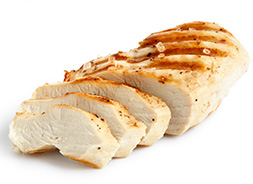
1. Chicken Breast
- Protein per 100g: ~31g
- Why it’s great: Low in fat, incredibly versatile
- Best for: Salads, stir, fries, grilled meal prep bowls
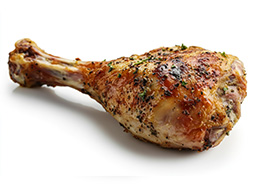
2. Turkey
- Protein per 100g: ~29g
- Why it’s great: Low fat, ideal for ground meat recipes
- Best for: Burgers, meatballs, high, protein soups
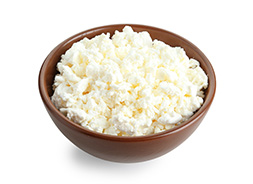
3. Cottage Cheese
- Protein per cup: ~28g
- Why it’s great: Very high in protein and low in carbs
- Best for: Savory or sweet snacks, quick lunches
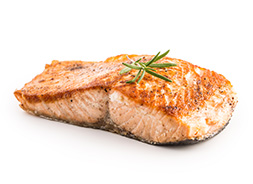
4. Salmon
- Protein per 100g: ~22g
- Why it’s great: Omega, 3s support heart and brain health
- Best for: Bakes, pan, searing, air, fryer recipes
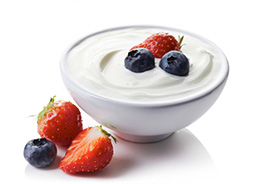
5. Greek Yoghurt
- Protein per cup: ~20g
- Why it’s great: Probiotic, rich, excellent calcium source
- Best for: Breakfast, snacks, smoothies
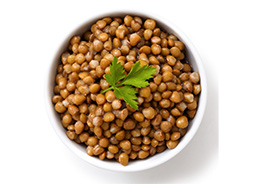
6. Lentils
- Protein per cooked cup: ~18g
- Why it’s great: High in fibre and iron
- Best for: Soups, curries, grain bowls
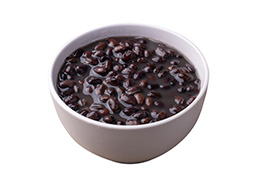
7. Black Beans
- Protein per cooked cup: ~15g
- Why it’s great: Budget, friendly, fibre, rich
- Best for: Burritos, soups, bowls
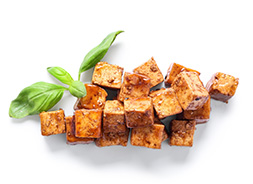
8. Tofu
- Protein per 100g: ~10g
- Why it’s great: Plant, based complete protein
- Best for: Stir, fries, scrambles, grilling
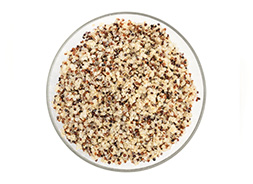
9. Quinoa
- Protein per cooked cup: ~8g
- Why it’s great: Gluten, free, full of fibre and minerals
- Best for: Meal prep, salads, bowls
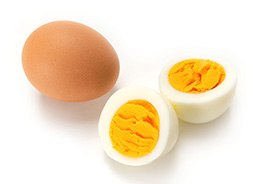
10. Eggs
- Protein per egg: ~6g
- Why it’s great: Inexpensive, nutrient, dense
- Best for: Breakfasts, frittatas, protein, rich snacks
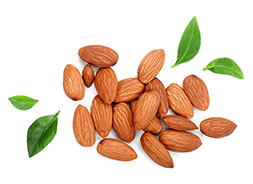
11. Almonds
- Protein per 28g: ~6g
- Why it’s great: Healthy fats + fibre
- Best for: On, the, go snacks, yogurt topping
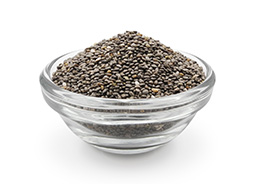
12. Chia Seeds
- Protein per 2 tbsp: ~5g
- Why it’s great: Packed with omega, 3s and fibre
- Best for: Overnight oats, smoothies, puddings
High protein meal prep ideas
Planning ahead ensures you always have healthy high protein food options ready. Here are some easy high protein meal prep ideas:
Zesty chicken & feta power bowl
Combine grilled chicken, quinoa, feta, kale and salad vegetables. Top with a lemon tahini dressing.
Spicy turkey and eggplant chilli
Lean turkey, capsicum, eggplant, tomatoes, and chilli spices create a warming, filling, high protein lunch or dinner.
Vanilla overnight oats with mango & chia
Soak oats, milk, chia seeds, yoghurt, vanilla and mango overnight for a foods with high protein snack or breakfast.
Can you eat too much protein?
While high protein diets are generally safe for most people, excessive intake over long periods can stress the kidneys, especially for those with existing kidney conditions. Also, a lack of dietary fibre and hydration alongside protein may cause digestive discomfort.
Aim for balance: Eat a variety of protein sources, include fibre, rich foods, and drink plenty of water.
Keep in mind if you are following the CSIRO Total wellbeing diet, it is very common in the first few weeks to experience gastrointestinal and physiological changes as your body adjusts to the new high-fibre, low-GI and high protein diet.
Having said that, whilst excessive protein intake is quite uncommon in Adult Australians, please visit a medical practitioner if you experience persistent or multiple symptoms from the below list:
- Bad breath
- Increased urination
- Dehydration & thirst
- Headaches
- Weight gain
- GI discomfort
- Nausea
- Fatigue
How Much Protein Do You Need?
The Recommended Daily Intake (RDI) for protein is 0.8g per kilogram of body weight. However, this is a bare minimum.
For weight loss, muscle preservation, or active lifestyles, experts suggest:
- General health: 0.8-1.2g/kg
- Weight loss/energy deficit: 1.2, 1.6g/kg
- Active/athletic individuals: 1.6, 2.2g/kg
For example, a 70kg (154 lb) woman trying to lose weight would benefit from 100-110g of protein per day.
CSIRO Total Wellbeing Diet Dietitian, Ali Collie’s Guide: How to Hit Your Protein Goals
Daily Protein Sample Plan (~120g)
| Meal | Food | Protein |
| Breakfast | 2 eggs on avocado multigrain toast + Greek yoghurt + fruit | ~30g |
| Lunch |
Black bean salsa, chargrilled corn + feta quinoa bowl |
~35g |
| Snack | Cottage cheese, apple + almonds | ~20g |
| Dinner | Baked pesto, crusted salmon + lentil ratatouille | ~35g |
Best Protein, Rich Foods to Stock Up On
Animal based:
- Chicken breast
- Turkey
- Salmon
- Greek yoghurt
- Eggs
- Cottage cheese
Plant based:
- Lentils
- Black beans
- Tofu
- Quinoa
- Chia seeds
- Almonds
Final thoughts...
Incorporating high protein foods into your daily meals is one of the most effective strategies for weight loss, muscle maintenance, and long, term vitality. Especially as you age or go through hormonal shifts like perimenopause and menopause, prioritising protein is essential for staying strong, lean, and energised.
Whether you're prepping meals in advance or choosing smarter snacks, focus on foods high in protein and low in kilojoules to support your health goals.
Now is the time to fuel your body with intention. Start adding these top high protein foods to your shopping list and build a sustainable, satisfying way of eating that supports your best self, today and into midlife and beyond.
The science is clear: a higher-protein diet—when balanced and sustained—can drive meaningful weight loss, support muscle retention, and curb hunger along the way. That’s why the CSIRO Total Wellbeing Diet program is designed with easy-to-follow meal plans and protein-balanced recipes along with the support of digital tools, so you can take the guesswork out of eating well and achieve real, measurable results—starting in just a few weeks.
Whether your goal is to lose weight, gain strength, or simply eat smarter, the CSIRO Total Wellbeing Diet program can help you build better habits, one balanced plate at a time.
